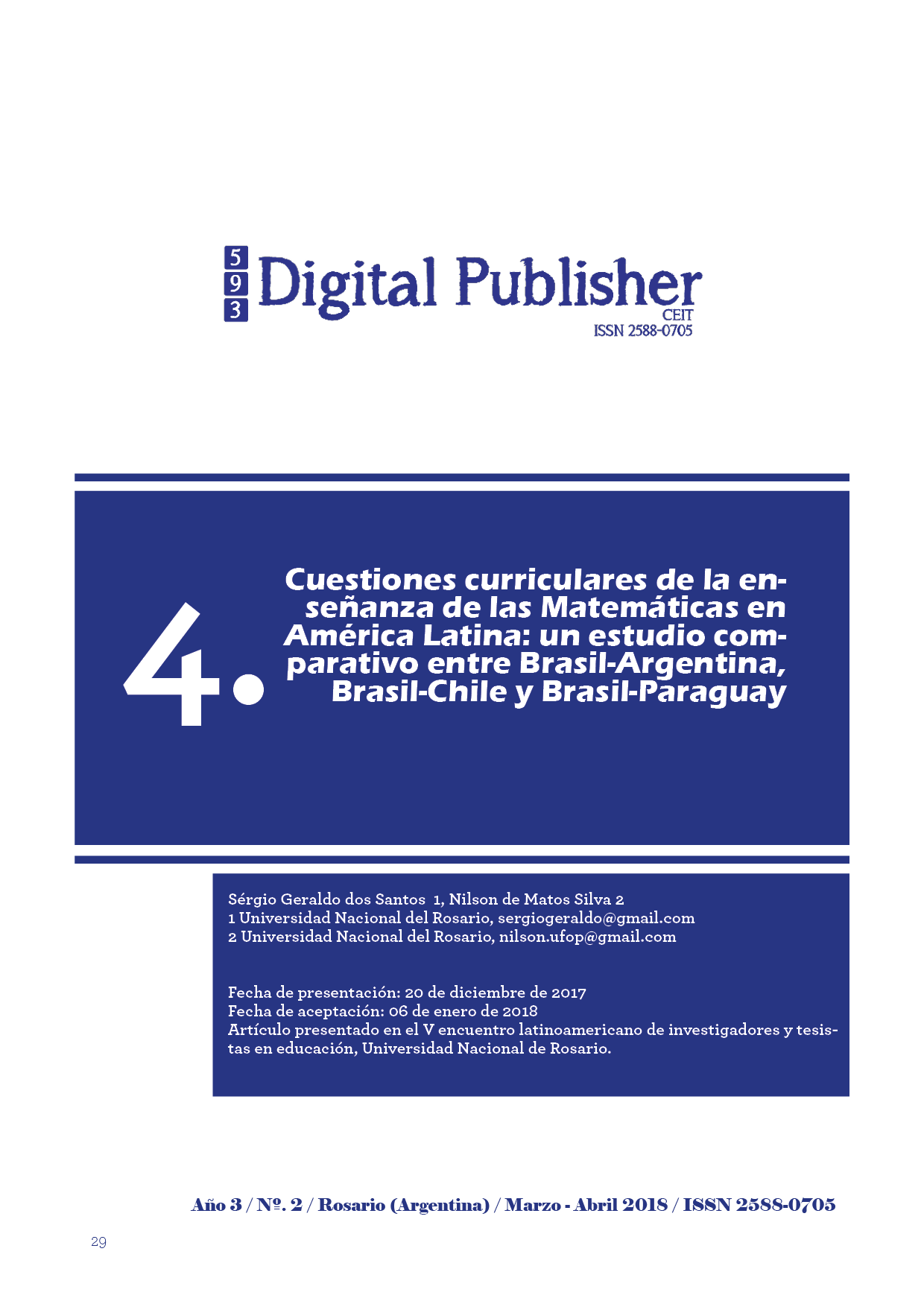Cuestiones curriculares de la enseñanza de las Matemáticas en América Latina: un estudio comparativo entre Brasil-Argentina, Brasil-Chile y Brasil-Paraguay
Main Article Content
Abstract
To debate on the Constitution of the identity of undergraduate courses in mathematics, considering the curricular part, as well as the aspects related to the formation of the future teacher of mathematics, Have been widely discussed in the academia, not only in Brazil, but throughout Latin America in view of its importance in the processes that involve the training of teachers, of which lack of studies oriented to Higher Education, especially as for formation process. The reflections on the curricula during formation for the mathematics education, objective to identify resemblances and differences between prescribed curricula and identifying the main influences of the investigations in Mathematical Education in the proposals formulation curriculares in some countries of Latin America, from a comparative study between Brazil - Argentina, Brazil - Chile and Brazil - Paraguay.
Downloads
Article Details
1. Derechos de autor
Las obras que se publican en 593 Digital Publisher CEIT están sujetas a los siguientes términos:
1.1. 593 Digital Publisher CEIT, conserva los derechos patrimoniales (copyright) de las obras publicadas, favorece y permite la reutilización de las mismas bajo la licencia Licencia Creative Commons 4.0 de Reconocimiento-NoComercial-CompartirIgual 4.0, por lo cual se pueden copiar, usar, difundir, transmitir y exponer públicamente, siempre que:
1.1.a. Se cite la autoría y fuente original de su publicación (revista, editorial, URL).
1.1.b. No se usen para fines comerciales u onerosos.
1.1.c. Se mencione la existencia y especificaciones de esta licencia de uso.
References
APLLE, M. Social structure, ideology and curriculum, en M. Lawn y L. Barton (eds.). Rethinking Curriculum Studies. Croom Helm Londres, 1994.
ARGENTINA. Lei n.º 24.195, aprobada em 29 de abril de 1993. Ley Federal de Educación. Buenos Aires, 1993.
Contenidos básicos comunes para la educación general básica (2ª ed.). Buenos Aires: Ministerio de Cultura y Educación de la Nación Consejo Federal de Cultura y Educación, 1995.
BRASIL. Parâmetros curriculares nacionais: Matemática – Terceiro e quarto ciclos do ensino fundamental. Brasília: Ministério da Educação/Secretaria de Educação Fundamental, 1998.
Relatório de análise de propostas curriculares de ensino fundamental e ensino médio. Brasília: Ministério da Educação/Secretaria de Educação Fundamental, 2010.
CHILE. Programa de Estudio. Chile: Ministerio de Educación. 2010.
DOLL JR., W. E. Currículo: Uma perspectiva pós moderna. Porto Alegre: Artes Médicas. 1997.
DOW, G . Teacher Learning, Routledge & Kegan Paul, Melbourne, 1982.
GESSER, Veronica & RANGHETTI, Diva Spezia. O currículo no ensino superior: princípios epistemológicos para um design contemporâneo. Revista e-curriculum, São Paulo, v.7 n.2, agosto, 2011.
GIROUX, Henry A. Os professores como intelectuais. Trad. Daniel Bueno. Porto Alegre: Artmed, 1997.
PARAGUAY. Ley n.º 1.264 General de Educación. Ministerio de Educación y Cultura. El congreso de la nacion paraguaya sanciona con fuerza de ley. 2011. Disponível em http://www.mec.gov.py/cms. Acesso em 12 abr. 2017.
PÉRES LINDO, Augusto. La batalla de la inteligencia, Cántaro, Buenos Aires, 1989.
_______. El currículo universitario frente a los cambios en los sistemas de ideas y creencias. Educación Superior Y Sociedad, Vol 7, n.1: 73-88, 1996.
RIGAL, Luis. A escola crítico-democrática: uma matéria pendente no limiar do século XXI. In: IBERNON, F. (Org.). A educação no século XXI: os desafios do futuro imediato. Trad. Ernani Rosa. 2. ed. Porto Alegre: Artes Médicas Sul, 2000.
RIVAROLA, D. M. (2000). La reforma educativa en Paraguay. Santiago de Chile: Cepal.
UNESCO Declaração Mundial de Educação para Todos. Jomtien. 2012. Disponível em http://unesdoc.unesco.org/images/0008/000862/086291por.pdf. Acesso em 12 abr. 2017.

